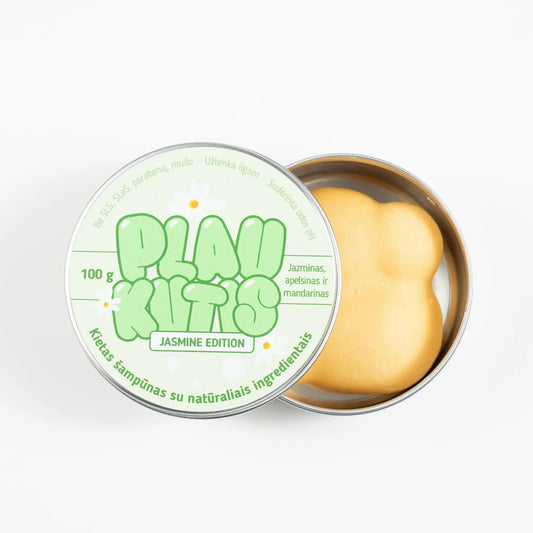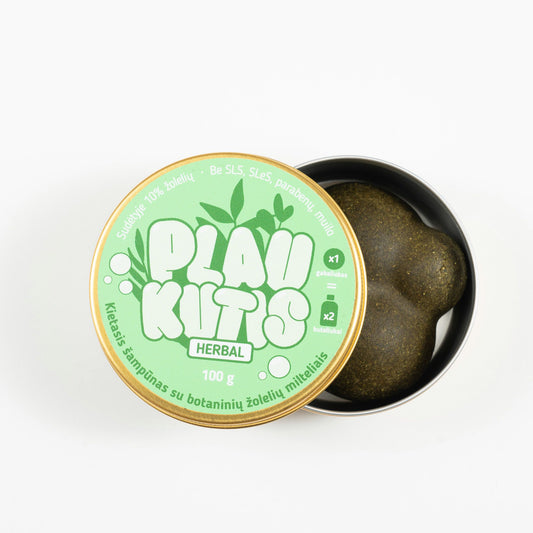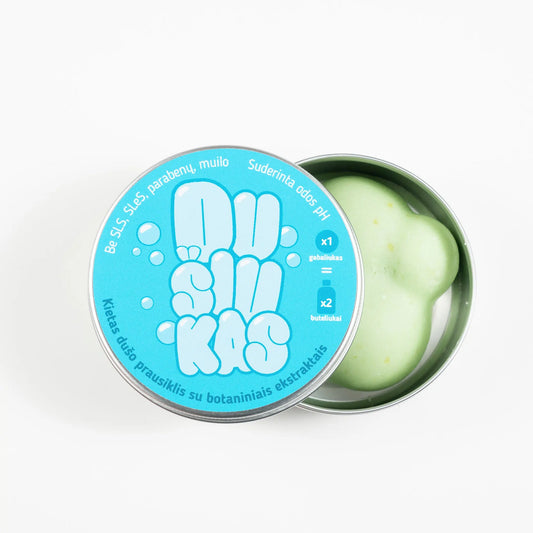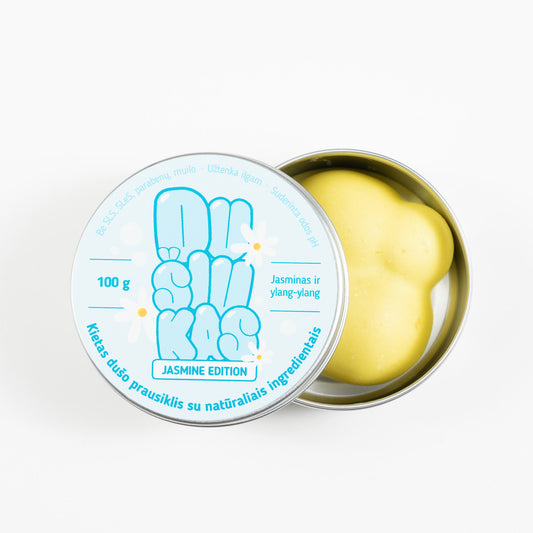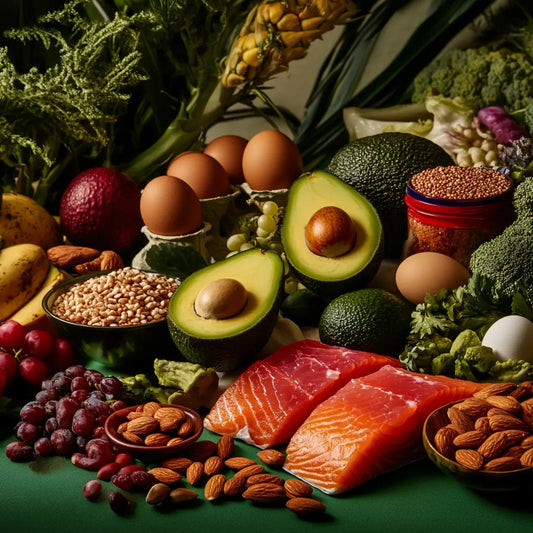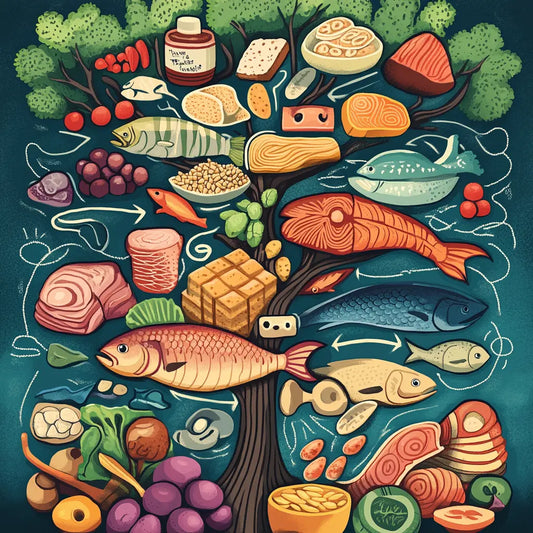Why do some cultures have thick, healthy hair that looks timeless? It’s not all about the fancy hair products – what you eat is also important. For centuries, traditional diets from around the world have supported strong, healthy hair – from the Mediterranean’s famed olive oil to Ayurvedic herbs like amla and fenugreek. In this article, we’ll delve into cultural dietary secrets that can help you naturally improve your hair health. We’ll explore the science, numbers and cultural habits that contribute to strong hair, and give you practical tips on how to improve your hair health.

Section 1: Introduction to Traditional Nutrition and Hair Care
Healthy hair depends not only on what we put on it, but also on what we eat. Our diet affects the strength, shine and growth of our hair. In various cultures, traditional dietary systems are full of nutrients that support overall health, including hair. From Mediterranean olive oil to East Asian seaweed, these cultural habits help nourish hair from the inside out.
- Fun fact: According to a Harvard study , people who eat a balanced diet rich in protein and vitamins are 40% less likely to experience hair thinning.
Section 2: Mediterranean Diet and Hair Health
The Mediterranean diet is well known for its heart benefits, but it is also a great ally when it comes to strong, shiny hair. This diet, rich in omega-3 fatty acids, antioxidants, and protein, promotes hair growth and reduces hair breakage.
Olive oil and omega-3 fatty acids for hair
Olive oil is a key ingredient in the Mediterranean diet and is rich in hair-strengthening omega-3 fatty acids. These healthy fats reduce inflammation in the scalp and improve blood circulation, promoting stronger hair growth.
- Cultural example: In ancient Greece, olive oil was used not only for food but also as a hair care product. Athletes would apply it to their hair and body in the hopes of gaining strength.
- Unexpected statistic: A study conducted in Italy showed that regular consumption of omega-3 rich foods can increase hair thickness by 30% in 6 months.

Nutritious foods like nuts, fish, and greens
Nuts, seeds, and oily fish like salmon are great sources of protein and healthy fats, which help produce keratin, the main structural protein in hair. Green vegetables like spinach provide the body with iron and vitamins, which are essential for the production of sebum (the skin's natural oil), keeping the scalp moisturized and reducing hair breakage.
- Fun fact: The Mediterranean region has one of the lowest rates of hair loss in the world. This is partly due to the abundance of nutrients in their daily diet.
- Surprising fact: People who regularly follow the Mediterranean diet have 20% thicker and shinier hair than those who don't, thanks to its rich nutrient content.

Section 3: Ayurvedic Diet and Herbal Hair Care
Ayurveda is an ancient holistic healing system from India that has long emphasized the importance of nutrition in maintaining hair health. Ayurvedic principles focus on balancing the body's natural energies, and certain herbs and foods have been used for thousands of years to nourish the hair and scalp from within.
Ayurvedic principles for hair health
The Ayurvedic diet is based on whole, unprocessed foods such as fruits, vegetables, and grains, which are believed to support a healthy body and mind. Ayurveda also emphasizes the importance of consuming seasonal and local foods to maintain the body's natural balance.

- Practical Tip: Drinking warm water with a pinch of turmeric in the morning is a common Ayurvedic practice that improves digestion and hair health. Good digestion is considered essential for healthy, shiny hair.
Herbs like amla, fenugreek, and brahmi for hair care
Amla (Indian gooseberry), fenugreek and brahmi are the main herbs in Ayurvedic hair care. Amla is rich in vitamin C and antioxidants that protect hair from weakening. Fenugreek contains proteins and nicotinic acid that promote hair growth and reduce dandruff. Brahmi soothes the scalp and promotes hair density.
- Unexpected fact: Amla has 20 times more vitamin C than oranges, making it a true superfood powerhouse for hair.
- Cultural example: In India, amla oil has been used for over 5,000 years to maintain strong and healthy hair. Even today, women apply amla oil once a week as a natural hair conditioner.
- Interesting study: A 2016 study showed that women who regularly used fenugreek powder experienced 44% less hair loss in just 3 months.
Section 4: East Asian Diet and Hair Health
The East Asian diet, especially that of Japan, Korea, and China, is renowned for its health benefits and has a significant impact on hair strength and longevity. This diet is rich in antioxidants, omega-3 fatty acids, and lean protein, which protect the scalp and promote healthy hair growth.

Seaweed, soy and green tea for hair strength
Seaweed is a common food in East Asia and is rich in iodine, an essential nutrient needed for thyroid health, which directly affects hair growth. Soy products like tofu are a great source of plant-based protein, and green tea is rich in antioxidants that protect hair from environmental stress and aging.

- Cultural fact: Japanese women are known for their lustrous hair, which they attribute to their diet, which is rich in seaweed and soy. This tradition dates back to the Heian period (794-1185), when women grew long hair as a sign of beauty and strength.
- Unexpected number: People who regularly consume seaweed have a 35% lower risk of hair loss due to its high iodine content, which supports healthy hair follicles.

Low-fat, nutrient-rich diet for scalp health
East Asian diets are known for being low in unhealthy fats and rich in nutrients that promote hair growth. Tofu, fish, and fresh vegetables support a healthy scalp, ensuring that hair follicles receive optimal nutrition.

- Interesting study: A study conducted in South Korea showed that drinking two cups of green tea daily can reduce hair loss by 25% over 6 months due to its antioxidant properties.
Section 5: Herbal hair care products
Herbal remedies have long been used to treat a variety of hair problems, from dandruff to hair loss. In many cultures, herbs like fenugreek, ginseng, and nettle have become essential parts of natural hair care routines.
Fenugreek for hair growth and dandruff control
Fenugreek seeds are rich in protein and nicotinic acid, making them an effective remedy for promoting hair growth. They also help control dandruff by moisturizing the scalp.
- Cultural insight: In regions of North Africa, women use fenugreek paste as a natural hair mask that strengthens hair roots and reduces dandruff.
- Fun fact: Studies have shown that 84% of people who used fenugreek seed treatments noticed less dandruff and stronger hair within 4 weeks.
Ginseng for hair follicle stimulation
Ginseng, a well-known herb in East Asia, stimulates the scalp by increasing blood circulation. It is a popular remedy for hair loss, especially among middle-aged men and women.
- Surprising fact: A 2012 study showed that using ginseng extract for 6 months reduced hair thinning by 30% and significantly improved hair density.
Nettle for reducing hair loss
Nettle leaves are rich in iron and silica, which are essential for promoting healthy hair growth and reducing hair loss. Nettle improves blood circulation in the scalp, ensuring that the hair follicles receive the necessary nutrition.

- Fun fact: In medieval Europe, nettle was often used in hair tonics to treat hair loss. Today, it is still widely used in herbal hair care products throughout Europe.
- Study Results: In a 2017 study, participants who used nettle-based hair treatments experienced 40% less hair loss over 3 months.
Section 6: Conclusion – The impact of traditional nutrition on hair health
Traditional diets from around the world are full of hidden hair-nourishing secrets. Whether it’s the healthy fats of the Mediterranean diet, the powerful herbs of Ayurveda, or the antioxidant-rich diet of East Asia, these cultural habits offer valuable insights into how to naturally support hair health. By incorporating these nutritious foods and herbs into your diet, you can significantly improve the strength, shine, and growth of your hair.
- Practical tip: Start small – add more omega-3 fats from olive oil and oily fish, and consider drinking herbal teas or using oil remedies like nettle and fenugreek to improve hair health.

Myth debunking or interesting facts
- Myth: Only expensive hair products can improve hair health.
Fact: A traditional, nutrient-rich diet can make a big difference in the health of your hair. Omega-3 fatty acids, vitamins, and herbs like fenugreek strengthen your hair without the expense. - Fun fact: In ancient Japan, long hair was a symbol of femininity and strength. Women grew their hair to great lengths and maintained it with seaweed-based products.
- Myth: Hair products are more important than nutrition for hair health.
Fact: What you eat has a huge impact on the health of your hair. Nutrition has a greater impact on the strength, texture, and growth of your hair than most products on the market. - Interesting fact: In Ayurveda, it is believed that massaging the head with amla oil not only promotes hair growth, but also calms the mind and reduces stress.
- Myth: Drinking water does not affect hair health.
Fact: Hydration is essential for a healthy scalp. Drinking plenty of water keeps your scalp hydrated, which promotes hair growth.

Practical tips or solutions
- Include more omega-3 fats: Add foods like salmon, walnuts, and chia seeds to your diet to make your hair shinier and stronger.
- Try herbal teas: Nettle and green tea are rich in antioxidants, which can improve scalp health and reduce hair loss.
- Use natural oils: Massage your scalp with olive or coconut oil once a week to nourish hair follicles and promote hair growth.
- Eat more leafy vegetables: Spinach, kale, and other leafy vegetables are rich in vitamins A and C, which are essential for maintaining a healthy scalp and reducing hair breakage.
- Add Ayurvedic herbs to your routine: Include amla, fenugreek, and brahmi in your diet or hair care routine to strengthen your hair from the roots and reduce hair loss.

Frequently asked questions
- Can nutrition really improve hair growth?
Yes, a nutrient-rich diet can improve hair growth and prevent hair thinning in the long run by nourishing hair follicles from the inside out. - How often should I use herbal hair products?
Herbal remedies such as fenugreek or ginseng are usually used 1-2 times a week. Regularity is important for best results. - Is olive oil suitable for all hair types?
Yes, olive oil is great for all hair types, especially dry or damaged hair, as it provides deep hydration and nourishment. - How long does it take for dietary changes to produce results for hair?
The first results are usually noticeable after 2-3 months, when hair growth and texture begin to improve due to consistent dietary changes. - Do herbal remedies have side effects?
Herbal remedies are generally safe, but it is always best to do a small allergy test before using any new herb or oil.
